Uro-Logical Solutions: Bridging Gaps in Care with Innovative Workshops
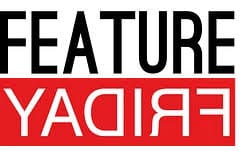
Feature Friday: The Urology Workshop – A Triumph of Collaboration
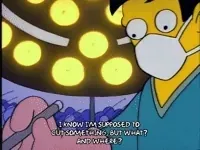
A few weeks ago, our anaesthesia department had the unique opportunity to support the Urology team during their highly anticipated workshop. This event aimed to provide cutting-edge surgical care to patients with complex urological conditions and offered an invaluable learning experience for our medical teams. To delve deeper into the significance of this workshop, we interviewed Dr. Pinto, one of the leading urologists, to gain insight into the motivation behind these workshops, the challenges faced, and how we as anaesthetists can continue to support this crucial work.
1. What specific unmet needs or gaps in urological care prompted the introduction of this workshop?
In the last two decades, urological care has seen an explosion of treatment options and procedures for previously harsh conditions. This has happened simultaneously with decreasing resources in state and academic hospitals in South Africa, where skills, equipment and human resources have been diminishing relative to the growth of the population being served. The exodus to the private sector and emigration of specialists have negatively affected Urological training in a country with only 350 Urologists for 62 million people. The depreciation of the rand and budget cuts, particularly state healthcare, negatively impact our access to the latest standard of care equipment and consumables, often sourced from overseas.This has led to a situation in which the current best treatments for several urological conditions are unavailable for patients and trainee urologists in Academic Institutes in SA. Workshops and Marathons, with their public-private partnership nature, allow us to tap into resources in the private sector, both locally and internationally, to benefit both our patients and our trainees.
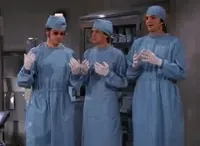
2. How do you identify the patients for these surgeries ?
All patients seen at the clinic are put on waiting lists with contact details captured. When a workshop is confirmed, patients are called in and reassessed from disease and anaesthetic point of view. If deemed a good candidate by the surgical expert in the field and the anaesthetist, things often go smoothly.
3. What are the primary objectives of the workshop, and how do they align with overall patient care goals?
The workshop's primary objective is to offer our patients the best standards of care and train future urologists to be adept at the latest advances in urology. Both objectives align very well with patient care goals. The first objective is to help the patient receive world-class care for free from a national or international expert. The second objective helps ensure that future patients receive the same from well-trained registrars and future urologists.
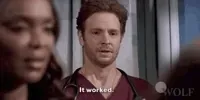
4. Can you discuss the initial challenges faced when setting up the workshop and how they were overcome ?
The recurring challenge we face with these workshops and seminars is the last-minute preparations. We have tried to tackle this several times but have not gotten any results. " Life happens ". All the key players in a workshop often have several commitments daily, weekly or monthly to see something six months away as a priority. Registrars get rotated around as staffing changes by the month or the day. The stress of CMSA exams and the MMed deadlines add to the responsibilities. The delays from our sponsors in the private sector to confirm funding for consumables and audiovisuals, the delays in HPCSA registration of international faculty, the NHLS lack, the radiology backlogs or machinery breakdowns, the unpredictability of Home Affairs that have rejected visas for global experts, the delays from the super busy specialists themselves in confirming availability or providing HR documents are just some of the challenges I encountered in the last few workshops. That being said, everyone who is a part of this kind of noble endeavour is going above and beyond in their way. For most, it is unpaid work, if not loss of income. Anaesthesia at Steve Biko and the theatre and ward nursing team have been absolute rockstars with every workshop. We understand the pressure you face, and you are often caught off guard and allocated to a workshop list. We are very grateful for it and something for which we cannot return the favour. Just telling my anaesthetists the personal stories of the patients they are helping makes them realize they are part of something bigger and more powerful.
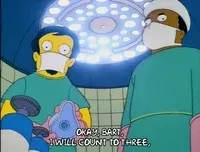
5. How has the introduction of this workshop improved patient outcomes and overall quality of life for those with complex conditions?
I want to use the following examples to highlight how these workshops with sponsored consumables and sometimes even sponsored theatre time in private hospitals have benefitted our patients:a) The Nelson Mandela Marathon, sponsored by African Synergy Health (ASH), and the South African Urology Reconstructive Workshop, sponsored by the Evelyn Moshokoa, organized for state-sector patients to get their surgery in private hospitals (Hatfield Urology Hospital & Advanced Groenkloof Hospital). More than 67 state-sector patients benefitted from this, and it significantly reduced the number on our waiting lists. The patients don't pay anything; all hospital charges and consumables are sponsored, and private surgeons and anaesthetists provide pro bono services. b) Seven gentlemen from the state sector with localized prostate cancer underwent life-saving robotic prostatectomy that has a lower postoperative complication rate (pain, ileus, transfusion rate, Thromboembolic risk, wound and lung sepsis, time to discharge) than the traditional open surgery. To give you an idea, this surgery costs 270,000 rand per patient in the private sector. But thanks to the Nelson Mandela Marathon, these seven patients enjoyed just under two million rand worth of sponsorship, something unthinkable to their families.c) A 22-year-old man with recurrent urethral stricture obtained a 42,000rand worth of paclitaxel drug-coated balloon (Optilume) sponsored, which decreases his stricture recurrence.d) Several other young patients have benefitted from sponsored prostheses for debilitating erectile dysfunction or total urinary incontinence. The cheapest artificial urinary sphincter on the market is 98,000rand, while a penile prosthesis is between 20,000 and 80,000, depending on the mechanism. Given the volume of patients we see with these conditions, sponsorship via workshops helps the hospital budget greatly.e) Six gentlemen with BPH benefitted from sponsored water vapour ablation of the prostate - REZUM. REZUM, which costs 60,000 rand, is an alternative treatment for BPH that protects sexual/ejaculatory function in a way that traditional TURP/ open prostatectomy cannot.f) Many consumables sponsored during the workshops/ marathons ( Flexible scopes, guidewires, pathfinders, ureteric catheters, laser fibres, Ellik evacuators, etc.) are safe for off-label reuse after resterilization despite being single-use in the resource-rich private sector. So, the sponsored equipment can help patients who are not part of the workshop at a later date. Plus, we still have a crate load of unopened, unused hydrophilic guidewires in the theatre that were sponsored during the last marathon and unused, which can easily help the urology theatre for another three months.
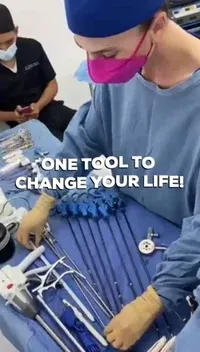
6. What feedback have you received from patients and their families regarding the workshop's impact?
So far, it's been very positive. I'm grateful that we haven't seen any complications yet, though theoretically, it's not entirely impossible. We review them regularly, and many of them have my cellphone number. The only unhappy patients are the ones who fell off the workshop list due to logistical/ time constraints and want to know when the next one will be.
7. How do you measure the success and effectiveness of the workshop in achieving its goals?
a) Patient satisfaction and outcomes at follow-up.b) Feedback from registrars and delegates. This data is not recorded officially but unofficially through messages, emails, and future goodwill.c) Number of cases done.
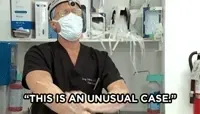
8. What collaborations or partnerships have been essential in establishing and maintaining the workshop?
Many team players are needed to host a workshop, with most outside my own department. The main pillars are nursing staff, hospital management, anaesthesia, industry sponsors, and patients. Audiovisual technicians, event organizers, catering staff, student volunteers, transport department and cleaning staff all play supportive roles.
9. How does the workshop contribute to the professional development of the surgical team and other medical staff involved?
Much of what is done in workshops is fast becoming the standard of care, if not already. In Urology final exams it is pretty standard to get asked questions on the very same stuff discussed/operated on in workshops - Questions on Pelvic fracture urethral injury, penile prosthesis, incontinence management in laparoscopic sacrocolpopexy, Rezum, Holmium laser enucleation, robotic prostatectomy, techniques of laparoscopic surgery were all parts of workshops in the last six months and also part of written and OSCE questions in Urology finals in the previous six months. So, for a urology registrar, participating in a workshop is a no-brainer. For specialist urologists, this is a part of continuing professional education and CPD points. The academic benefits to anaesthesia and nursing staff may be limited. That being said, I find that these teams are often the most interested as they get exposure to something new and something extraordinary while feeling like they are contributing to something bigger.
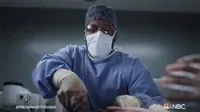
10. What long-term benefits do you anticipate for the healthcare system as a result of this workshop's introduction?
a) Improved team morale.b) Continuing to improve South African Urological standards of care to global standards.c) decreased waiting list backlog.d) and possibly lower complication rates, as in workshops, it is common for surgery to be allocated to an expert in that field.
11. how can we as anaesthetists help with these workshops and ensure smooth running ?
Honestly, nothing more. My last few interactions with your department in over three workshops have been excellent. Dealing with anaesthesia has been the easiest of all the players on the team. I experienced that anaesthesia registrars allocated to workshop lists take extra interest in the pre-medication of patients and theatre preparation. So all I would like to express to your department is gratitude. I also apologize for the last-minute planning. Much stuff is out of my control, but it's not a reason to give up. You guys are the best sports! Keep being AWESOME!
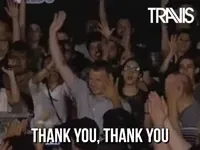
As we reflect on the success of the Urology workshop, let’s take pride in the role we played and continue to strive for excellence in our collaborative efforts. Together, we can achieve remarkable outcomes for our patients and contribute to the ongoing advancement of medical care.


